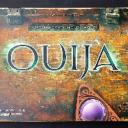Yahoo Answers is shutting down on May 4th, 2021 (Eastern Time) and the Yahoo Answers website is now in read-only mode. There will be no changes to other Yahoo properties or services, or your Yahoo account. You can find more information about the Yahoo Answers shutdown and how to download your data on this help page.
Why the so-called "scientists" ignore the Cornell University study proving precognition?
The study was done under strict controls and followed the scientific method exactly. The study results are definitive.
I want to thank you all for your answers. They showed me people are willing to listen to data. His methods were scientifically sound. He did test with multiple subjects, in multiple groups, It was not just a single group of test subjects, I was pleased to see no one gave the standard answer "Science has proved it can't happen".
7 Answers
- jLv 71 decade agoFavorite Answer
If you're a human being and not a honey bee, you would tend to believe your senses and ignore the possibility of ultraviolet color.
If you're a human being and not championing your inner childlike joy, purity, love and truth, you would tend to ignore Soul, as more engrossed with atoms and perhaps childish pride, etc.
It is a type of "confirmation bias;" objective, reductive atomism is more easily confirmed by making matter jump through hoops; the "Interior Castle" protocols of a Saint Teresa of Avila are ignored as making no "sense." Such "scientists" are as people beholding themselves in a mirror, then walking away and forgetting what they've beheld in a Bem-class study--no "Self-awareness."
A few scientists do see through this bias, but the pressure to conform is very significant: http://www.tillerfoundation.com/
- JohnLv 71 decade ago
You need to think a little deeper and not just blindly accept what you hear.
This study was done by Prof. Bern at Cornell. Was it really done under "strict controls"? That's always the claim, but almost never seems to be the case with parapsychology studies. Did it really follow the scientific method? Maybe, maybe not. We don't know. Has it been replicated by multiple research teams, something absolutely necessary before anything can be considered "proven"? NO.
Furthermore, every time I have dug deep into a parapsychology study I have come away disappointed with the methodology, statistical analysis or experimental controls. There's no reason yet to think that this experiments is any different. And to be clear, nothing is "proven" in science in the strict sense. Scientists deal in evidence and probabilities, not proof.
When this study is duplicated by other universities, and specifically by psychology professors who don't necessarily hold a belief in the truth of the hypothesis they are testing, then you will have my attention. Until then, it's just the same old crap. And in fact, other researchers have attempted to duplicate Bern's results and were not successful. See the MSN link.
Also, psychology Prof. Richard Wiseman has found fault in Bern's other ESP research. See wordpress.com link. Also attached below is the only publication on this experiment I could find. Strangely, the author did not include any raw data. Apparently we are asked to simply trust him.
Source(s): http://www.psych.cornell.edu/sec/pubPeople/djb5/Pr... http://richardwiseman.wordpress.com/2010/11/18/bem... http://cosmiclog.msnbc.msn.com/_news/2010/11/12/54... - andymanecLv 71 decade ago
I agree that science hasn't proved that it can't happen... but on the other hand, these studies haven't show than it *does* happen either. I'm not sure which study you're referring to (there are multiple ones), but in each case, they haven't used adequate controls (certainly not strict ones). On top of this, the numbers that they get are only ever so slightly above a random distribution (well within the variance one would expect from experimental noise - especially since the studies have used multiple subjects, but not enough to bring down error to acceptable levels).
I've read the research, but I'm not at all convinced... the level of rigor tends to be much lower than pretty much any other area of science. If the phenomenon didn't disappear with tighter controls (it almost always does), then it would show that there could be merit in looking closer in a dedicated study. If it persisted then, I'd say that the research suggests that there might be something behind precognition. As it stands now, though, nothing has been proven.
- Dr. NGLv 71 decade ago
We've been through this before. Proffessor Bem's experiment is not being ignored, it's being analyzed and studied. Scientists and even simple laymen like myself do not like to jump to conclusions. Do you really expect one study to instantly change the minds of everyone?
I'll admit the study is interesting and it seems Prof Bem is a respected academian, but hardly definitive.
Below, I've left two links (again), one is one skeptics view of the Cornell study, the other Prof. Bem's response to it.
You believe it to be ignored because you're only looking at one side of the discussion. An open minded person would be interested in all sides, not just those supporting the views they prefer.
Source(s): http://www.csicop.org/specialarticles/show/back_fr... http://www.csicop.org/specialarticles/show/respons... - 1 decade ago
Daryl Bem (the guy who came up with the Cornell study) is a reformed skeptic. I think some skeptics might have a problem with that!
"Daryl Bem is a scientist with impeccable credentials who is highly respected for his work in psychology. He was once a skeptic of psi research, and since he has skills as an illusionist, he was recruited as a skeptical consultant on ESP experiments by leading parapsychologists like Charles Honorton. Once he became familiar with the work that was being done in parapsychology and after he critically examined the research, Dr. Bem realized that there were convincing effects being produced that called for further experimentation. In other words, rather than sticking to his deep seated beliefs and rationalizing his objections, Bem followed the evidence."
- 1 decade ago
Alright first of all I have to say that certain subjects within the scientific community are extremely biased due to the researchers beliefs. It hard to trust what is real anymore
- Anonymous1 decade ago
I believe I had one event. I think someone told me I was about to break a leg. I believe in time travelers.






